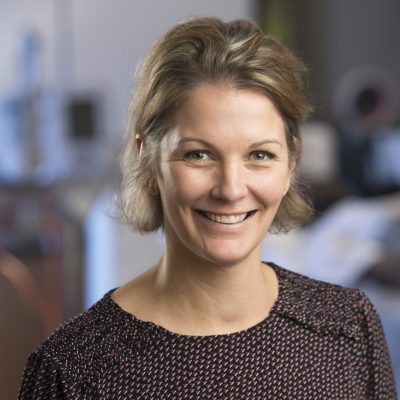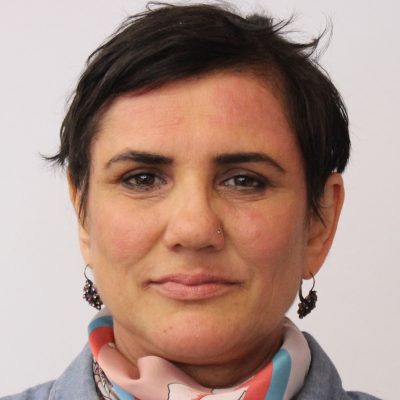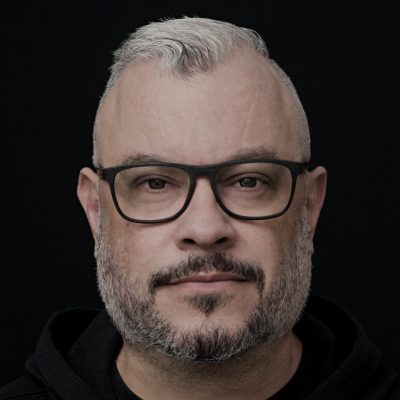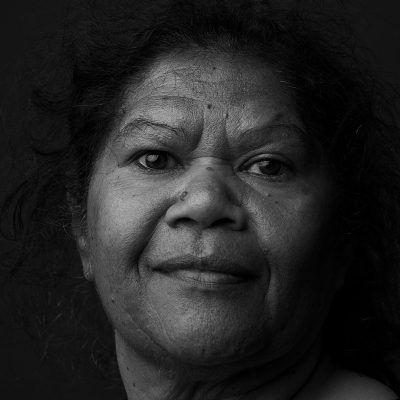Chapter 9: Planetary Health: Learning from First Nations’ Knowledges and Voices
Gabrielle Brand; Gitanjali Bedi; Steve Wise; and Rosalie Kickett
Uncertainty in Planetary Health
A co-author of this chapter, Rosalie Kickett, a Noongar woman, cultural healer, and teacher from Western Australia, speaks on Noongar boodja (Noongar ‘Country’) of the Baranginge Koort (stolen heart). This is Rosalie’s story.
I was coming through a little town called Wandering. And in the field of the paddock you know, there was a circle of weitj [emus] gathered together like in my Dreamtime story … from the father to the mother and the baby ones … it was like they were dancing around in a circle and it was like that the old ones were trying to keep the young ones together. It reminds us of the story of the stolen ones … we were stripped of almost everything, our language, the way we lived, everything from to the children being taken away (Rosalie on Noongar Boodja / Noongar Land). (Brand et al., 2023, p. e98)
Rosalie’s Dreamtime story highlights how Indigenous knowledges, such as storytelling, offer different ways of seeing, knowing, and understanding complex healthcare issues, such as planetary health. In western cultures, radical reframing of the world introduces many uncertainty stimuli, as the power structures, ways of understanding the world, and social and cultural defining characteristics are all questioned. Foregrounding Indigenous knowledges serves to challenge preconceptions, spark learner curiosity in the face of uncertainty, and foster new and different ways of understanding complex problems, like planetary health and its impact on human health.
Planetary health addresses the impacts of human disruptions to earth’s natural systems on human health and all living systems (Planetary Health Alliance, 2024). Humanity’s collective impact on nature is contributing to devastating and irreversible changes to earth’s climate and ecosystems, and healthcare has a significant environmental footprint (Whitmee et al., 2015). This is ironic, given that healthcare is trusted with preventing illness and protecting human health. Globally, healthcare systems consume substantial quantities of energy, water, natural resources, and chemicals and create enormous amounts of greenhouse gas emissions, single-use plastic waste, and toxic pollutants, which in turn contribute to decreased health outcomes, and these are further decreased by the devastating impacts of climate change.
Climate change poses one of the greatest threats to public health (Costello et al., 2009; World Health Organization, 2021). Diverse populations are increasingly impacted by climate change, including First Nations communities, who are disproportionately impacted by climate change, experiencing lower than average health equity outcomes (Matthews et al., 2021). Uncertainty related to climate change comes from considering what, on its current trajectory, the planet will look like in the future, as well as how healthcare can be reimagined towards becoming more sustainable. Two core questions arise from this uncertainty:
- How is the healthcare workforce preparing and responding to this unknown future in the face of climate change? (e.g., novel viruses, heat-related illness, spread of disease) while ensuring equitable health outcomes are experienced by all?
- How do healthcare professionals and organisations change their practices to reduce healthcare’s environmental footprint and to practise in more sustainable ways?
To move towards the goals and imperatives of planetary health, we need transformative approaches to education that strengthen the future healthcare workforce’s capacity to achieve universal healthcare and the United Nations’ Sustainable Development Goals (Walpole et al., 2019).
Currently, healthcare professionals are entering the workforce ill-equipped and lacking confidence to respond to health-related climate and environmental impacts (Shaw et al., 2021; Slimings et al., 2022). This was highlighted in an Australian study on university health professions educators’ teaching practices that found while most educators understood the importance of teaching sustainable healthcare, many were not teaching it, did not know how to teach it, or lacked confidence in teaching it (Brand, Collins, et al., 2021). Figure 9.1 emphasises the importance of incorporating sustainable healthcare practices into health professions training to address the critical link between planetary health and human health. The findings on educator confidence levels to teach planetary health were not surprising, given the complexity of integrating multiple planetary health concepts, perspectives, and disciplines, including ethics, communication, physiology, leadership, and advocacy.
![Figure 9.1 Research with Australian University Health Professions Educators on Sustainable Healthcare, 2021. An infographic on a blue background stating in dark-blue large font, ‘Code Blue’. Underneath, in white font, the text reads, ‘Planetary Health Is Human Health’, with the word is underlined for emphasis. This is followed by the definition of planetary health, as the text reads, ‘The health of human civilisation and the state of the natural systems on which it depends’. Including the action words in text, stating, ‘We need to ACT NOW [in capital letters] to equip our future healthcare workforce with the knowledge and skills to advocate and practice for a more sustainable future’. On the left-hand side is an image of a person with a stethoscope in their ears. There is a circular image of planet earth globe behind the person’s left shoulder. The stethoscope tubing leads the eye to the following statement, which has an electrocardiogram tracing of a heart wave on each side of the text: ‘Research with university educators on sustainable healthcare education (SHE) shows’. Below are four key statistics on the research findings: ‘81% had not taught SHE’, ‘68% report not knowing how best to teach SHE’, ‘39% are confident to teach SHE’, and ‘96% agree healthcare professionals should be equipped to practice sustainably’.](https://oercollective.caul.edu.au/app/uploads/sites/66/2024/08/ED_SHE_Infographic-slide1_FA-scaled.jpg)
Based on this research, and to emphasise the urgency for planetary health education across health professions, Brand, Collins, et al. (2021) conducted the ‘Teach Green Hackathon’, including a ‘Utopia’ activity, which divided an assembly of university educators into two groups, the first of which was asked to imagine what the healthcare sector would look like in 2050 if it continued on its current, unsustainable path, and the second, to describe what sustainable healthcare would look like. Figure 9.2 depicts the results of the Utopia activity and presents two vastly different scenarios to prompt consideration of the choices and actions needed to shape a more sustainable future for the healthcare sector.
![Figure 9.1 Research with Australian University Health Professions Educators on Sustainable Healthcare, 2021An infographic on a blue background stating in dark-blue large font, ‘Code Blue’. Underneath, in white font, the text reads, ‘Planetary Health Is Human Health’, with the word is underlined for emphasis. This is followed by the definition of planetary health, as the text reads, ‘The health of human civilisation and the state of the natural systems on which it depends’. Including the action words in text, stating, ‘We need to ACT NOW [in capital letters] to equip our future healthcare workforce with the knowledge and skills to advocate and practice for a more sustainable future’. On the left-hand side is an image of a person with a stethoscope in their ears. There is a circular image of planet earth globe behind the person’s left shoulder. The stethoscope tubing leads the eye to the following statement, which has an electrocardiogram tracing of a heart wave on each side of the text: ‘Research with university educators on sustainable healthcare education (SHE) shows’. Below are four key statistics on the research findings: ‘81% had not taught SHE’, ‘68% report not knowing how best to teach SHE’, ‘39% are confident to teach SHE’, and ‘96% agree healthcare professionals should be equipped to practice sustainably’.](https://oercollective.caul.edu.au/app/uploads/sites/66/2024/08/ED_SHE_Infographic-slide2_FA-scaled.jpg)
This ‘Utopia’ activity acknowledged that we’re at a critical crossroad, which has led to increased calls to action among healthcare educators, researchers, and practitioners. The future healthcare workforce needs to be prepared with requisite skills and knowledge to take action and advocate for planetary health and sustainable healthcare (Brand, Collins, et al., 2021; Faerron Guzmán et al., 2021; Walpole et al., 2019). However, specific planetary health teaching and learning approaches that equip educators to develop students’ knowledge, skills, mindsets, and practices in enhancing ecosystems with human health are not going far enough in practice. They remain monodisciplinary, reflecting western paradigms, and appear on the margins of most health professions training; in other words, they tend to be focussed on traditional cultural ‘certainties’.
Priorities to Prepare Learners for Uncertainty in Planetary Health
According to the Planetary Health Education Framework, published in The Lancet, the complexity and uncertainty of teaching planetary health can be mitigated by viewing it across five core domains, with interconnection within nature at its heart (Faerron Guzmán et al., 2021) (see Figure 9.3). The interconnectedness of planetary and human health highlights a need to expand our education and epistemological approaches so that they incorporate diverse data from a wide range of perspectives, including the perspectives of First Nations land stewards, who have an innate understanding of the reciprocity and interconnectedness of all living beings (Ratima, 2019).
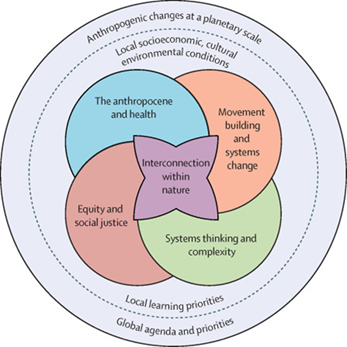
Fostering Uncertainty Tolerance in Planetary Health Learners
As alluded to above, western, colonial thinking and positivist knowledge systems that focus on ‘rightness’ and ‘wrongness’ dominate health professions education. As such, they fail to prepare learners for complexity, ambiguity, and the more open mindset needed for tackling planetary health challenges. Current western educational paradigms tend to reinforce, rather than question, settler colonialist structures of Indigenous inequality, inequity, and invisibility (Tuck et al., 2014). Planetary health–informed education approaches can benefit from highlighting ‘how historical and political injustices … have contributed to the disenfranchisement of populations and a degraded environment’ (Faerron Guzmán et al., 2021, p. e254). A key part of healthcare professionals’ understandings of how to improve outcomes for the health of the population and the planet lies in the recognition, valuing, and inclusion of Indigenous knowledge systems (Redvers et al., 2020).
Recognising the core planetary health education domain of interconnection within nature and the need to bring together First Nations and western ways of knowing in health professions education, we present the exemplar activity below. It draws on Indigenous knowledges and voices to foster uncertainty tolerance and deepen healthcare professionals’ knowledge, skills, and values and to prepare the healthcare workforce for justice-enhancing praxis in planetary health.
Exemplar Activity
Activity Origin
As mentioned earlier, planetary health education has largely been limited to monodisciplinary, western knowledges with an ad hoc curriculum that is peripheral to health professions tertiary education. Such approaches often overlook the complex interdependence of ecosystems and human health. Therefore, we designed a resource titled ‘Speak from the Heart: Exploring Planetary Health’, which brings together Indigenous and western ways of knowing in planetary health education that considers ‘the epistemological aspects of “land” and “Country” with a necessity for true reconciliation between people and place in the learning environment’ (Redvers et al., 2020, p. 1087). The resource includes Facilitator notes.
Sources of Uncertainty
As co-author Rosalie asserts in ‘Speak from the Heart: Exploring Planetary Health’ (Slide 2), it is essential that we start by assisting the healthcare workforce to recognise and understand the history of colonialism and its continuing impacts on human health in Australia.
Facilitator Guide
Drawing on and adapting the Association for Medical Education in Europe Consensus Statement (Shaw et al., 2021), we designed the activity around three learning objectives (see Table 9.1, Slide 3) that focus on embedding Indigenous knowledges and learnings in health professions education, including human interconnectedness within nature as a determinant of planetary health (moderator: career value) (Redvers et al., 2022). These are complemented by a series of arts-based educational strategies for small groups (see Table 9.1) designed to engage learners in planetary health, to effectively stimulate meaning-making and reflective learning (new ways of knowing) (moderator: reflective learning), and to translate new learnings into health professions behaviour changes (Haidet et al., 2016) (moderator: uncertainty dress rehearsal).
Table 9.1 'Speak from the Heart: Exploring Planetary Health' Education Resource Objectives and Strategies
| Learning Objectives | Arts-Based Educational Strategies |
|---|---|
| 1. Identify how Indigenous traditional knowledges and voices can inform healthcare practice and promotion of planetary health in your local context | Engagement through key documents like Uluru Statement from the Heart (Uluru Statement, n.d.-a), a narrative portrait, and visual thinking strategies |
| 2. Reflect on how the promotion of planetary health can support progress on social determinants of health, health equity, and respect for cultural diversity, including Indigenous traditional knowledges | Meaning-making through audio-recorded narrative designed to challenge bias and assumptions and to facilitate cultural literacy and justice-enhancing praxis in planetary health |
| 3. Discuss the role of healthcare professionals in advocacy and activism in terms of planetary health and environmental stewardship | Translation through reflective questioning prompts and brainstorming solutions (moderators: reflexivity, responsibility for knowledge, sense of purpose, peer learning) |
(Brand et al., 2023, p. e99)
This activity can be delivered in a single disciplinary or interdisciplinary context with current or future healthcare professionals at any stage (undergraduate to postgraduate) (moderator: diverse teamwork). While the activity focusses on Rosalie’s experiences of Country, as she shares First Nations learnings around her own interconnection within nature as vital to understanding planetary and human health, it is important to acknowledge the diversity of Indigenous peoples in Australia and globally. The first activity involves learning about key documents, such as the Uluru Statement from the Heart (Uluru Statement, n.d.-a) (Slide 4), which is used as a talking point about Indigenous calls for policy reform and for recognition and protection of the rights of Aboriginal and Torres Strait Islander peoples as the First Peoples of Australia. Slide 5 poses reflective questions for learners to discuss in small groups, to link the political context, including the 2023 Voice to Parliament (Uluru Statement, n.d.-b), with Learning Objective 1 (moderators: critical reflection, diverse teamwork).
The activity then invites learners into Rosalie’s narrative world, drawing on Indigenous research methodologies that facilitate in-depth discussions and ‘knowledge creation within collaborative respectful partnerships with non-Indigenous researchers’ through yarning, or Aboriginal storytelling (moderator: setting clear roles) (Geia et al., 2013, p. 16). The authors of this chapter worked together to design a strengths-based narrative portrait that symbolises Rosalie’s connection to Country, which is the centrepiece of the activity (Slide 6). The portrait is used to explore, engage, and make meaning through visual thinking strategies (Hailey et al., 2015). Visual thinking strategies is a research-informed pedagogical approach that promotes close looking at art, enhancing observation and communication (Kelly-Hedrick et al., 2022). It is designed to stimulate uncertainty and foster uncertainty tolerance (Klugman et al., 2011) by questioning preconceptions and encouraging learners to critically reflect on unexplored worldviews (Lazarus et al., 2023). It is important that no prior context is given when Rosalie’s portrait is projected onto a large screen. Then, in a supportive learning environment (moderators: pastoral care, psychological safety), the visual thinking strategies activity can be used to stimulate open, reflective exploration in interdisciplinary small groups (moderators: diverse teamwork, reflective learning).
Following this, learners listen to Rosalie’s audio-recorded narrative and are introduced to the meaning to her of each of the symbols in the portrait (moderator: expert guidance) (Slide 7). The transcript of Rosalie’s description of the symbols’ meanings is set out below (Brand et al., 2023, p. e101):
This part of the activity is unique to the co-design Depth of Field education approach (Brand, Miller, et al., 2016) that purposefully juxtaposes the portrait with Rosalie’s narrative to affirm, bring to the surface, or challenge bias and/or cultural assumptions to create the tension needed for deep, transformational learning to occur, including fostering cultural literacy. Cultural literacy, defined as the knowledge and skills needed to understand cultural differences (García Ochoa et al., 2016), is a key driver of social justice. This meaning-making educational strategy was deliberately designed to raise awareness of healthcare professionals’ power and privilege (Ratima et al., 2019), as learners are asked to sit in ‘the uncomfortable tension that can be felt while walking through difficult historical truths’ (Redvers et al., 2020, p. 1088) (moderators: humility, cognitive flexibility). This aligns with the planetary health framework domain of systems thinking and complexity, which should move learners ‘towards self-awareness to acknowledge their own biases and epistemological groundings’ (Faerron Guzmán et al., 2021 p. e254).
Next, learners are encouraged to consider and translate new learnings to their health professions roles through a structured reflection (moderator: uncertainty dress rehearsal), a known education tool to help manage stimulated uncertainty (Lazarus et al., 2023). The reflective questioning prompts (Slide 8) are designed to bring to the surface any hidden bias, power, or privilege. They invite learners to bravely contemplate how dominant western knowledge systems have silenced the experiential knowledges that Indigenous voices bring to understanding planetary health. In addition, health professions learners are asked to engage in a personal reflection on planetary health learnings and to explore avenues for activism in sustainable development and environmental stewardship in healthcare (Slide 9), including making a pledge of individual and/or collective action (moderator: sense of purpose) (Slide 10). Finally, learners watch a video of Rosalie giving her key messages (moderator: expert guidance) (Slide 11).
Impact
This activity was evaluated informally through piloting and observing its impact on our health professions educator colleagues. While we have not yet delivered ‘Speak from the Heart: Exploring Planetary Health’ in the classroom, we know that arts- and humanities-based education is a potent educational strategy to foster tolerance of uncertainty (Schaff et al., 2011); to enhance connection between medical learners and their emotional responses (Lenahan & Shapiro, 2005); to encourage general practitioner learners’ reflective capacity, self-awareness, and professional development (Rutherford et al., 2018); and to bring to the surface healthcare professionals’ stereotypical views and unconscious biases towards ageing (Brand & McMurray, 2009; Brand, Osborne, et al., 2016). Arts- and humanities-based approaches can also promote more humanistic models of care (Brand, Sheers, et al., 2021). In addition, co-designed education interventions, including narrative portraits and digital storytelling, have been found to promote empathy and inspire future changes to healthcare practice (Whitelaw et al., 2023).
Adaptations and Summary
While this chapter is focussed on embedding traditional Indigenous knowledge into planetary health education in Australia, we believe the teaching approaches and strategies described could be adapted by educators in countries other than Australia. To ensure appropriate local contextualisation and relevance, we encourage non-Indigenous educators to engage in authentic co-design of content with, and led by, Indigenous communities. We suggest educators adapt the reflective discussion points to suit their local communities and learning environments to ensure contextual content, relevance, and understanding, using authentic co-design processes. Around the globe, unique knowledges exist, and therefore we suggest that educators conduct their own reading around Indigenous perspectives on education for sustainable healthcare (see Redvers et al., 2020) and liaise with their own university’s First Nations education unit to ensure that the contextual relevance and resonance of the Indigenous context are appropriate for their learners.
Conclusion
When you train and you’re working in this field – my people can read a person and if they know that it’s not genuine, they will refuse, because that respect is not given, it’s not from the heart. And that’s that blockage … When you’re working with them, Aboriginal and Torres Strait Islander people, Indigenous people, learn to walk alongside (Rosalie on Noongar Boodja / Noongar Land). (Brand et al., 2023, p. e101)
The health of our planet, and the trajectory of its inhabitants, is uncertain. Uncertain times exacerbate social, cultural, and health inequities and injustice, particularly in traditional, westernised healthcare structures and models of education. Currently, healthcare professionals enter the workforce ill-equipped and lacking confidence to respond to health-related climate and environmental impacts. In this chapter, we have presented a novel way to embed Indigenous knowledges and voices into planetary health education to foster uncertainty tolerance. We hope it will deepen healthcare professionals’ knowledge, skills, and values and prepare the future healthcare workforce for justice-enhancing praxis in planetary health.
References
Brand, G., Collins, J., Bedi, G., Bonnamy, J., Barbour, L., Ilangakoon, C., Wotherspoon, R., Simmons, M., Kim, M., & Schwerdtle, P. N. (2021). ‘I teach it because it is the biggest threat to health’: Integrating sustainable healthcare into health professions education. Medical Teacher, 43(3), 325–333. https://doi.org/10.1080/0142159X.2020.1844876
Brand, G., & McMurray, A. (2009). Reflection on photographs: Exploring first-year nursing students’ perceptions of older adults. Journal of Gerontological Nursing, 35(11), 30–37. https://doi.org/10.3928/00989134-20091001-03
Brand, G., Miller, K., Wise, S., Saunders, R., Dugmore, H., & Etherton-Beer, C. (2016). Depth of field: Using photographs and narratives to explore and reflect on ageing. Reflective Practice, 17(6), 676–680. https://doi.org/10.1080/14623943.2016.1206878
Brand, G., Osborne, A., Carroll, M., Carr, S. E., & Etherton-Beer, C. (2016). Do photographs, older adults’ narratives and collaborative dialogue foster anticipatory reflection (‘preflection’) in medical students? BMC Medical Education, 16, Article 289. https://doi.org/10.1186/s12909-016-0802-2
Brand, G., Sheers, C., Wise, S., Seubert, L., Clifford, R., Griffiths, P., & Etherton‐Beer, C. (2021). A research approach for co‐designing education with healthcare consumers. Medical Education, 55(5), 574–581. https://doi.org/10.1111/medu.14411
Brand, G., Wise, S., Bedi, G., & Kickett, R. (2023). Embedding Indigenous knowledges and voices in planetary health education. The Lancet Planetary Health, 7(1), e97–e102. https://doi.org/10.1016/S2542-5196(22)00308-4
Climate and Health Alliance. (2023). Come to our Greening the health sector forum. https://www.caha.org.au/forum2023
Costello, A., Abbas, M., Allen, A., Ball, S., Bell, S., Bellamy, R., Friel, S., Groce, N., Johnson, A., Kett, M., Lee, M., Levy, C., Maslin, M., McCoy, D., McGuire, B., Montgomery, H., Napier, D., Pagel, C., Patel, J., … Patterson, C. (2009). Managing the health effects of climate change. The Lancet, 373(9676), 1693–1733. https://doi.org/10.1016/S0140-6736(09)60935-1
Faerron Guzmán, C. A., Aguirre, A. A., Astle, B., Barros, E., Bayles, B., Chimbari, M., El-Abbadi, N., Evert, J., Hackett, F., Howard, C., Jennings, J., Krzyzek, A., LeClair, J., Maric, F., Martin, O., Osano, O., Patz, J., Potter, T., Redvers, N., … Zylstra, M. (2021). A framework to guide planetary health education. The Lancet Planetary Health, 5(5), e253–e255. https://doi.org/10.1016/S2542-5196(21)00110-8
García Ochoa, G., McDonald, S., & Monk, N. (2016). Embedding cultural literacy in higher education: A new approach. Intercultural Education, 27(6), 546–559. https://doi.org/10.1080/14675986.2016.1241551
Geia, L. K., Hayes, B., & Usher, K. (2013). Yarning/Aboriginal storytelling: Towards an understanding of an Indigenous perspective and its implications for research practice. Contemporary Nurse, 46(1), 13–17. https://doi.org/10.5172/conu.2013.46.1.13
Global Green and Healthy Hospitals, Pacific Region reports. https://greenhospitals.org/
Haidet, P., Jarecke, J., Adams, N. E., Stuckey, H. L., Green, M. J., Shapiro, D., Teal, C. R., & Wolpaw, D. R. (2016). A guiding framework to maximise the power of the arts in medical education: A systematic review and metasynthesis. Medical Education, 50(3), 320–331. https://doi.org/10.1111/medu.12925
Hailey, D., Miller, A., & Yenawine, P. (2015). Understanding visual literacy: The visual thinking strategies approach. In D. Baylen & A. D’Alba (Eds.), Essentials of teaching and integrating visual and media literacy: Visualizing learning (pp. 49–73). Springer. https://doi.org/10.1007/978-3-319-05837-5_3
Healing Foundation. (2018). The Healing Foundation intergenerational trauma animation [Video]. Vimeo. https://vimeo.com/278954700
Kelly-Hedrick, M., Chugh, N., Zahra, F. S., Stephens, M., & Chisolm, M. S. (2022). Art museum-based teaching: Visual thinking strategies. Academic Medicine, 97(8), 1249. https://doi.org/10.1097/ACM.0000000000004600
Klugman, C. M., Peel, J., & Beckmann-Mendez, D. (2011). Art rounds: Teaching interprofessional students visual thinking strategies at one school. Academic Medicine, 86(10), 1266–1271. https://doi.org/10.1097/ACM.0b013e31822c1427
Lazarus, M. D., Gouda‐Vossos, A., Ziebell, A., & Brand, G. (2023). Fostering uncertainty tolerance in anatomy education: Lessons learned from how humanities, arts and social science (HASS) educators develop learners’ uncertainty tolerance. Anatomical Sciences Education, 16(1), 128–147. https://doi.org/10.1002/ase.2174
Lenahan, P., & Shapiro, J. (2005). Facilitating the emotional education of medical students: Using literature and film in training about intimate partner violence. Family Medicine, 37(8), 543-545. https://www.stfm.org/familymedicine/vol37issue8/Lenahan543
Matthews, V., Atkinson, A., Lee, G., Vine, K., & Longman, J. (2021). Climate change and Aboriginal and Torres Strait Islander health. Lowitja Institute. https://www.lowitja.org.au/wp-content/uploads/2023/06/Lowitja_ClimateChangeHealth_1021_D10-1.pdf
Planetary Health Alliance (2024). Planetary health. https://www.planetaryhealthalliance.org/planetary-health
Ratima, M. (2019). Leadership for planetary health and sustainable development: Health promotion community capacities for working with Indigenous peoples in the application of Indigenous knowledge. Global Health Promotion, 26(4), 3–5. https://doi.org/10.1177/1757975919889250
Ratima, M., Martin, D., Castleden, H., & Delormier, T. (2019). Indigenous voices and knowledge systems: Promoting planetary health, health equity, and sustainable development now and for future generations. Global Health Promotion, 26(3, Suppl.), 3–5. https://doi.org/10.1177/1757975919838487
Redvers, N., Celidwen, Y., Schultz, C., Horn, O., Githaiga, C., Vera, M., Perdrisat, M., Plume, L. M., Kobei, D., Kain, M. C., Poelina, A., Rojas, J. N., & Blondin, B. (2022). The determinants of planetary health: An Indigenous consensus perspective. The Lancet Planetary Health, 6(2), e156–e163. https://doi.org/10.1016/S2542-5196(21)00354-5
Redvers, N., Schultz, C., Prince, M. V., Cunningham, M., Jones, R., & Blondin, B. (2020). Indigenous perspectives on education for sustainable healthcare. Medical Teacher, 42(10), 1085–1090. https://doi.org/10.1080/0142159X.2020.1791320
Rutherford, Forde, E., Priego-Hernandez, J., Butcher, A., & Wedderburn, C. (2018). Using photography to enhance GP trainees’ reflective practice and professional development. Medical Humanities, 44(3), 158–164. https://doi.org/10.1136/medhum-2017-011203
Schaff, P. B., Isken, S., & Tager, R. M. (2011). From contemporary art to core clinical skills: Observation, interpretation, and meaning-making in a complex environment. Academic Medicine, 86(10), 1272–1276. https://doi.org/10.1097/ACM.0b013e31822c161d
Shaw, E., Walpole, S., McLean, M., Alvarez-Nieto, C., Barna, S., Bazin, K., Behrens G., Chase, H., Duane, B., El Omrani, O., Elf, M., Guzmán, C. A. F., de Barros, E. F., Gibbs, T. J., Groome, J., Hackett, F., Harden, J., Hothersall, E. J., Hourihan, M., … Woollard, R. (2021). AMEE consensus statement: Planetary health and education for sustainable healthcare. Medical Teacher, 43(3), 272–286. https://doi.org/10.1080/0142159X.2020.1860207
Slimings, C., Sisson, E., Larson, C., Bowles, D., & Hussain, R. (2022). Adaptive doctors in Australia: Preparing tomorrow’s doctors for practice in a world destabilised by declining planetary health. Environmental Education Research, 28(5), 786–801. https://doi.org/10.1080/13504622.2021.2025343
Tuck, E., McKenzie, M., & McCoy, K. (2014). Land education: Indigenous, post-colonial, and decolonizing perspectives on place and environmental education research. Environmental Education Research, 20(1), 1–23. https://doi.org/10.1080/13504622.2013.877708
Uluru Statement. (n.d.-a). The statement. https://ulurustatement.org/the-statement/view-the-statement/
Uluru Statement. (n.d.-b). What is the Voice? https://ulurustatement.org/the-voice/what-is-the-voice/
Walpole, S. C., Barna, S., Richardson, J., & Rother, H. A. (2019). Sustainable healthcare education: Integrating planetary health into clinical education. The Lancet Planetary Health, 3(1), e6–e7. https://doi.org/10.1016/S2542-5196(18)30246-8
Whitelaw, K., Seubert, L., Lee, K., Etherton-Beer, C., Clifford, R., Sheers, C., Loveny, J., & Brand, G. (2023). ‘Listening from a personal perspective’: Does co-designed mental health education shift stigma? A mixed method evaluation study. The British Journal of Social Work, 53(2), 812–830. https://doi.org/10.1093/bjsw/bcac155
Whitmee, S., Haines, A., Beyrer, C., Boltz, F., Capon, A. G., de Souza Dias, B. F., Ezeh, A., Frumkin, H., Gong, P., Head, P., Horton, R., Mace, G. M., Marten, R., Myers, S. S., Nishtar, S., Osofsky, S. A., Pattanayak, S. K., Pongsiri, M. J., Romanelli, C., … Yach, D. (2015). Safeguarding human health in the Anthropocene epoch: Report of the Rockefeller Foundation-Lancet Commission on planetary health. The Lancet, 386(10007), 1973s2028. https://doi.org/10.1016/S0140-6736(15)60901-1
World Health Organization, 2021. Climate change. https://www.who.int/news-room/fact-sheets/detail/climate-change-and-health
Media Attributions
- Figure 9.1 Research with Australian University Health Professions Educators on Sustainable Healthcare, 2021 © Monash University Sustainable Development Institute is licensed under a CC BY-NC (Attribution NonCommercial) license
- Figure 9.2 Healthcare Educators’ Views on What the Healthcare Sector May Look Like in 2050 © Monash University Sustainable Development Institute is licensed under a CC BY-NC (Attribution NonCommercial) license
- Figure 9.3 The Planetary Health Education Framework © C. A. Faerron Guzmán, A. A. Aguirre, B. Astle, E. Barros, B. Bayles, M. Chimbari, N. El-Abbadi, J. Evert, F. Hackett, C. Howard, J. Jennings, A. Krzyzek, J. LeClair, F. Maric, O. Martin, O. Osano, J. Patz, T. Potter, N. Redvers … M. Zylstra is licensed under a CC BY-NC-ND (Attribution NonCommercial NoDerivatives) license
A solutions-oriented, transdisciplinary field and social movement focused on analysing and addressing the impacts of human disruptions to Earth’s natural systems on human health and all life on Earth (The Planetary Health Alliance, n.d., para. 1).
Sustainable healthcare refers to "high-quality healthcare for all, without compromising the ability to meet the health needs of the next generation" (Barna et al, 2020, p. 4).
Teaching and learning approaches that equip educators to develop students’ knowledge, skills, mindsets and practices to enhance eco-systems with human health.

